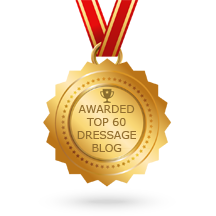Horses For Courses
You know you have the time and the money to make it happen but should you? Is a horse really the right investment? In this blog we take a look at exactly what you need when it comes to buying your own horse and whether it’s the right move for you.
 |
| Baby Hafl |
The Basics
Before you even set foot in a stable yard, let’s take a look at some of the research you’re going to need to put in when it comes to basic horse care.
Unless you have plenty of land yourself, it’s likely you’re going to need to rent a stable in order to house your new addition. Give yourself plenty of time to buy the basics you need to care for your horse when in his new home. Things like bridles and saddles can wait as you’ll want to make sure you get the right fit for your horse when he arrives, so stick with the basics.
Buy plenty of brushes and mane combs for grooming and make sure he has access to plenty of bedding. Your stable should allow you to use spades and forks for mucking out purposes and give you access to wheelbarrows and so on.
If they don’t already provide it, make sure your stable is equipped with feeding and watering troughs, old rainwater tanks customised for the job will do.
Make sure you have plenty of ropes and a halter and some old blankets for the colder months, then comes the fun part: choosing your steed.
One Size Does Not Fit All
If you’ve been riding for a while you’ll have a good idea of what size and the temperament of the horse you can handle. If you’re relatively new then remember that younger isn’t necessarily better and a calmer, more mature animal might be just what you need.
First of all, you’ll want to make sure you go to a reputable horse dealer or stable when it comes to buying your animal. You’ll want to go somewhere where the welfare of the animal is the first priority and animals are sold on in tip-top condition, healthy and without underlying problems. If you’re not sure then check online with owners or pony clubs to find your nearest recommendation.
Next check the wording of any advert that you’re answering. For example if an advert describes a horse as “green” then that animal is highly likely to need a lot of training and you’ll have to ask yourself if you’ve got the skill or expertise to make that happen.
Go and meet any horse you intend to buy and try and spend a little time with him. Check out his manners as you approach. Is he affectionate and stands still while you work around him or does he buck and bite? A horse who is calm on the ground is going to be an easier ride and will allow you to grow and mature with him.
Home Life
Where possible, try and choose a horse that comes from a similar background to the home he will be settling into. Horses from quiet, rural settings who suddenly find themselves in a busy stable yard may find it hard to adjust and take a little longer to settle in. You can’t be with them 24-hours a day so you need to know that your horse is not distressed as it comes to terms with its new surroundings.
Health Checks
Don’t even think about buying a new horse without having a thorough health check carried out. You’ll need a Pre-Purchase Examination done by a vet, bearing in mind that a five-stage PPE is needed in order to get insurance for your animal.
You will also need to check your horse against his passport particulars to make sure that you are being sold the same horse that appears in his documentation. That document should also set out all the vaccinations and previous owners he’s had and will give you a good indication of his history.
If you have any doubt about his health or his history, or if the passport details don’t seem to match up then you’ll need to walk away from the sale and report the seller for mis-selling an animal. The police or RSPCA may become involved in they suspect there is any animal cruelty involved.
Once all the paperwork is signed and you’ve prepared a stable for your horse it’s time to take them home. You’ll also then be able to find a correctly fitting saddle and bridle and begin the process of bonding with your animal.
Buying a horse is not the same as buying any other pet. For a start, it’s a lot more expensive and will demand daily visits to keep up with feeding, grooming, training and riding. Owning a horse is not a weekend activity and though you may be able to afford full or part-time livery, the responsibility still falls on your shoulders.
If you do buy a horse, the very best thing you can do is to find one that matches your level of experience and expertise. Unless you can spend hours training an inexperienced pony, don’t buy one younger than around five-years-old. You’ll also want to think about who’s riding your horse. Will it just be you or do you have younger children you’d also like to teach. A calm, older horse is a sensible option in this case.
Bear in mind how much expense is likely to be spent out on your horse. From the basics such as food and bedding to vet bills and stable fees, it can add up.
*This post may contain affiliate links.
Labels:
Tips











No comments:
Post a Comment